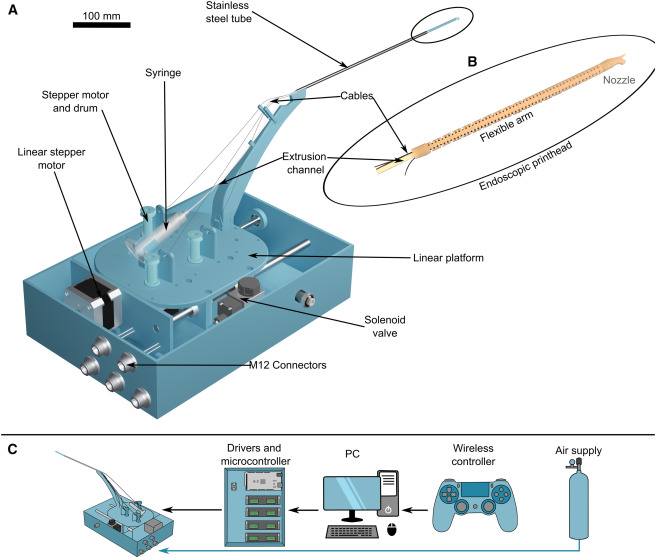
Date:2024-07-31 17:43:51
Source: Economic Daily
Recently, the German Renaissance Credit Bank released a report stating that Germany is at the forefront of academic research in the field of artificial intelligence, but it is not an excellent provider of AI solutions and lags far behind the world's leading countries in terms of the number of AI patents.
In terms of translating scientific research achievements into practical applications, Germany is clearly lagging behind the leaders in artificial intelligence technology such as the United States and China, and the gap is continuing to widen. Koehler Geib, Chief Economist of Deutsche Bank, stated that "in the field of artificial intelligence, Germany finds it difficult to transform scientific research results into products that can be applied by enterprises." At the same time, the number of AI related products and services imported by Germany far exceeds the export volume of this field, leading to an increasing dependence on AI services from a few large foreign companies, which has raised concerns about Germany's future competitiveness. Gabe said, 'In terms of artificial intelligence applications, other countries are developing at a faster pace, and we must ensure that Germany does not fall too far behind.'.
After entering the 21st century, with the rapid development of new technologies, especially the rapid advancement of computing power, artificial intelligence has begun to leave the laboratory and become increasingly close to daily production and life. Nowadays, many artificial intelligence applications such as ChatGPT have become important tools for text creation, image generation, and program writing. However, the various contributions made by German scientists to the development of artificial intelligence are difficult to translate into AI products that can be applied by enterprises due to issues such as the loss of German technical talent and poor investment environment.
At present, the number of new artificial intelligence patents submitted by German research institutions lags far behind countries such as the United States and China. According to a report by Deutsche Bank, based on data provided by the German Research and Innovation Expert Committee, the number of patent applications in the field of artificial intelligence in China has increased by 100 times compared to the beginning of this century, while Germany has only increased by 3 times during the same period. In addition, currently Germany's share of global artificial intelligence patent registrations is only 6%, far behind China's 29% and the United States' 27%.
According to the "2023 Global Artificial Intelligence Adoption Index" released by technology company IBM, in Germany, approximately 32% of companies with over 1000 employees use artificial intelligence as part of their business operations and are exploring the use of AI technology. Additionally, 44% of companies are exploring the use of AI. According to the report, Germany lags significantly behind countries such as India, the United Arab Emirates, Singapore, and China in the application of artificial intelligence in enterprises. The application rates of artificial intelligence in these leading countries all exceed 50%, while the global average is 42%.
Inga Fechner, a senior economist at Dutch International Group, said that many German companies are still in the experimental stage of artificial intelligence, and problems such as strict data protection, lack of employee skills, and lack of use cases are hindering the use of artificial intelligence by companies. Some companies are still watching from the sidelines.
In terms of investing in artificial intelligence startups, Germany, which is deeply mired in economic recession, also seems powerless. The "2024 Artificial Intelligence Index Report" released by Stanford University's Human Centered Artificial Intelligence Research Institute points out that from 2013 to 2023, Germany ranked only sixth in the world in terms of private sector investment in artificial intelligence, behind the United States, China, the United Kingdom, Israel, and Canada.
Although artificial intelligence is currently a hot topic, according to a report released by research firm Gartner, it does not occupy a major position in the information technology (IT) budget of European companies. Gartner predicts that IT spending in Europe will increase by 9.3% year-on-year this year, reaching $1.1 trillion, but IT is not its top priority. Companies will focus on other goals such as revenue generation, maintaining profitability, or strengthening security.
Alexander Lother, an artificial intelligence expert at Berlin University of Applied Sciences and Technology, also has many concerns about the current development status of Germany's artificial intelligence field. He stated that Germany is increasingly playing the role of a customer in the field of artificial intelligence products. Most of these products come from countries outside of Europe. In addition, Germany's inability to retain outstanding artificial intelligence talent has exacerbated the country's decline in artificial intelligence. Many German universities are engaged in artificial intelligence research, cultivating a large number of high-quality talents, but many of them choose to work abroad after graduation.
The strict regulation of data by the European Union and Germany also puts German companies at a disadvantage. Currently, most artificial intelligence applications require big data to drive, and EU regulation is pushing up the cost of obtaining training data for Germany's local artificial intelligence ecosystem. Regarding this, Lother suggested that Germany should create open-source datasets for commercial use.
To promote the development of artificial intelligence in Germany in the future, Deutsche Bank suggests that on the one hand, Germany should address the urgent need for "sufficient access to artificial intelligence training data" as soon as possible; On the other hand, in order to avoid falling behind in the global artificial intelligence competition, Germany also needs to increase investment to promote artificial intelligence research and development, and increase relevant training opportunities for students and practitioners in this field. (Chen Ximeng, Economic Daily)





